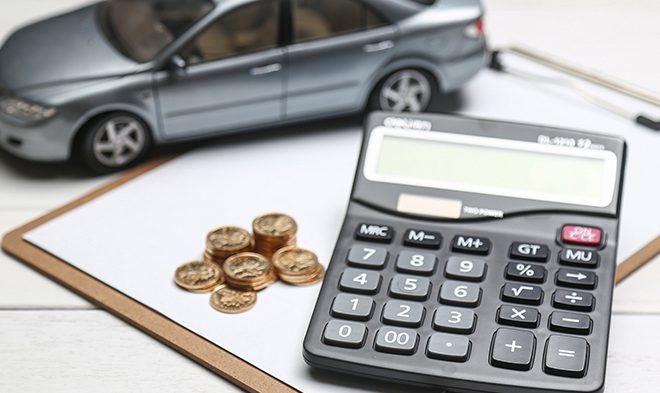What can you do if you are single parent and battling to get financial assistance from your Ex?
What can you do if you are single parent and battling to get financial assistance from your Ex?
Are you a single parent due to a divorce or a relationship breakup?
Wouldn’t you agree that your child’s financial wellbeing should be the responsibility of both parents?
You would think that would be the case, but unfortunately some parents don’t end up honouring their legal financial obligations to their children and that is why there is a child maintenance system in place in South Africa.
The Human Sciences Research Council (HSRC) and the South African Race Relations Institute (SARRI) did research over a period of 5-years and the results showed that 60% of SA children have absent fathers. It also brought to light that more than 40 percent of South African mothers are single parents.
Another staggering statistic from the General Household Survey 2018, led by Stats SA, showed that, 43% of children lived only with their mothers while a much smaller percentage (3,3%) of children lived only with their fathers in 2018.
So, we thought highlighting aspects of the maintenance system would shed light on the legal backing single parents have available to them, so they can get financial support from their child’s other parent.
First, let’s clarify what child maintenance is:
Both parents have the legal responsibility to make sure that their minor children have access to basic needs such as having a home to live in, being clothed, having medical care available to them, being educated and being fed.
Here are some other facts about child maintenance that we would like to make you aware of:
- You can lodge a complaint for maintenance at any local Magistrate’s Court where you, the applicant and/or the child lives.
- All parents, whether married or not, living together, separated or divorced and parents of adopted children or legal guardians of a child, are legally required to support the financial needs of the child or children.
- Maintenance can be claimed from your child’s biological grandparent/s if your child’s other parent cannot afford to pay maintenance.
- Maintenance can be payable even before a child is born. It is called ‘lying-in expenses’ and may include maintenance for the mother for expenses she will incur before or during the birth of the child. These expenses must be for the benefit of the child only.
- When a couple is going through a divorce, one of the spouses is often ordered by a court to pay maintenance to the other spouse, while the divorce proceedings are being finalised. This is called an interim order. Rule 43 of the High Court Rules permits a person to sue for interim maintenance from their spouse, either for themselves or their children, until the divorce is finalised.
- When you are trying to work out the amount of maintenance you should claim, think about the following:
- What are the amounts of money you spend on food, clothing, accommodation, medical care and education for your child, just to name a few monthly expenses.
- Also add in an amount for what it costs for electricity, water, linen, the washing of clothes, aftercare and transportation to and from school each month.
- The standard of living and financial means of each parent will need to be analysed when calculating the amount of maintenance each parent should pay.
- The court will ultimately determine how much a child needs and how much each parent can afford to pay each month.
- The maintenance money should be paid every month on the date that is agreed to by both parties and granted by the court.
- If either parent can no longer afford to pay the agreed maintenance amount or if one parent needs to get the current maintenance order increased, they can apply for an increase or decrease order at the Magistrate’s Court where the original maintenance order was made at. That parent would have to complete the relevant forms, submit a detailed income and expenditure statement and submit it to the maintenance officer.
Circumstances that could bring this on would be if for example one of the parents loses their job or remarries or where the child may need special care (like occupational therapy). In previous cases where a father remarries and then has to support a “second” family, this financial obligation shouldn’t impact negatively on his “first” family. A father may not raise a defence that the needs of his second wife is a reason to reduce maintenance in respect of the children of his first wife.
- In certain circumstances, the financial responsibilities of both parents may include having to provide tertiary education for their child. The courts will have to consider the parents’ financial circumstances and the child’s academic aptitude and abilities to attend a tertiary education institution, to determine whether there is a duty to provide tertiary education in each case.
- If the respondent fails to pay the agreed upon maintenance to you, within the agreed upon times, you should report the matter to the Maintenance Offices.
- According to the Maintenance Amendment Act (Act No.9 of 2015)parents who default on their maintenance order can be held liable in the following ways:
- be blacklisted at credit bureaus,
- have interest added to their maintenance arrears, or
- Warrant of execution – the attachment and selling of the defendant’s property, such as his/her furniture, car and so on.
- Emolument attachment order – the attachment of the defendant’s salary for payment of the monthly maintenance.
- Attachment of debt – the attachment of money owed to the defendant by a third party, other than a salary, for example rent owed by a tenant of the defendant.
- Criminal prosecution – the laying of a criminal complaint against a defendant based on the failure to comply with the maintenance order.
- If you don’t know the whereabouts of your child’s other parent, maintenance investigators can track them down and they’ll be able to determine his/her financial capabilities. If they still can’t be reached, the court can issue an order to a cell phone service provider to provide the court with the person’s contact details.
How do you apply for child maintenance?
Here are some steps you can follow:
Visit the nearest magistrates’ court to apply for child maintenance and take the following documents with you
- Birth certificate of your child/children.
- Your identity document
- Proof of residence.
- A divorce settlement.
- Proof of your monthly income and expenses.
- The personal details of the parent required to pay maintenance such as their name, surname physical and work address.
- Copy of your 3-month bank statement.
The application process:
- A maintenance clerk will submit your forms to the maintenance office for review and registration.
- Provide proof of your monthly income and expenses such as receipts for food purchases, school fee receipts, clothing receipts and electricity/rent bills, along with your completed form.
- You’ll then receive a reference number.
- The court will serve a summons (a letter instructing a person to come to court) to the respondent (the parent or guardian who should pay maintenance) to appear in court on a specific date in order to discuss the matter.
- The magistrate will review the relevant documentation. He/she will then make an order and may decide to do so without requiring the parties to appear in court.
- If the responsible person doesn’t consent to the issuance of an order, they must appear in court, where evidence from both parties and their witnesses will be heard.
- If the court finds the person liable for paying maintenance, payments must be made. It’s a criminal offence not to pay.
If a parent, who is ordered to pay maintenance each month, doesn’t pay, the primary caregiver of the child can do the following:
- Lay a formal complaint at the maintenance office.
- Take along records of payment and non-payment to show how much is owed.
- Ask the court to get the maintenance directly from their employer.
- The court will grant permission to the defaulting parent to explain why they didn’t pay. However, without a good reason, the parent will either need to pay all the outstanding maintenance or they’ll go to jail.
We hope this article has given you some more insight.
Until next time.
The MoneyShop Team




